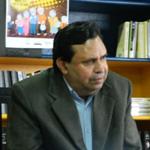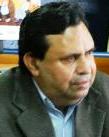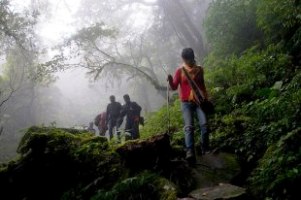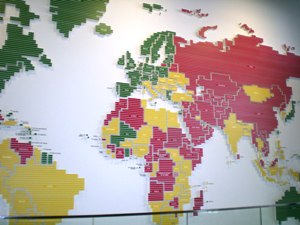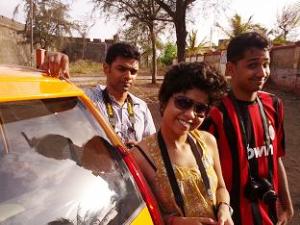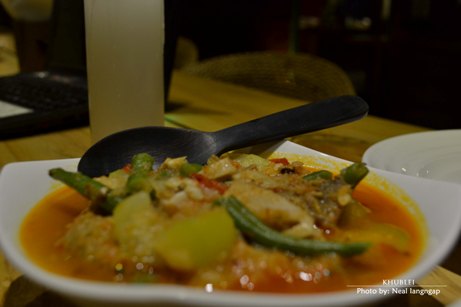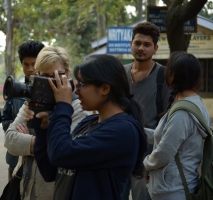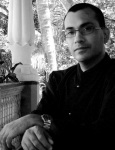It was Mahatma Gandhi who told Sardar Vallabhbhai Patel, if I am not mistaken: ‘’Sardar, you are no longer the sardar I knew’’. Gandhi was referring to the partition of the country based on the two-nation theory which Jinnah was championing from his own end as a votary of Pakistan. But I do not know if history has also recorded the fact that initially Jinnah was an avowed advocator of an undivided, secular India. It is only when he felt that he was ‘cheated‘ by the others did he start playing his cards for the two-nation theory. Perhaps he felt let down in the issue of leadership. He was not basically a fundamentalist, he was westernized in habits and spoke English with the occidental’s gusto. So history took a new turn and the two nation theory came into existence with both Patel and Nehru capitulating, because it was capitulation that they wanted. Gandhi did not want this, and he personally went to Noakhali during the Hindu-Muslim riots on the eve and in the wake of the partition. Now there has been a quibble about Patel’s role as a secularist with the Prime Minister and the chief minister of a state, not known to be exactly a lover of Muslims, looking at Sardar Patel from different perspectives. Patel may have been secular in his thought processes but he acceded to the demand for Pakistan, which was a clever ploy of Jinnah to wrest power from the two Congress leaders. Gandhi of course maintained an apolitical stance when it came to holding a political position such as that of the Prime Minister, but inside he was saddened. History has taught us a few lessons regarding the partition of the country and we can clearly see the fall outs today.
The logic of history took another course when East Pakistan was dismembered and Bangladesh came into being. Very few point out that the secession of the then East Pakistan was based on culture and language and not on religion. The identity question was that of culture and Not Islamic identity. As Tariq Ali pointed out in his breathtaking book: ‘’Will Pakistan Survive’’ the question of a sovereign country in East Pakistan was on the premises of language, and how West Pakistan was grossly negligent of then East Pakistan, the geographical alienation accentuated the separation of the two countries. It is only when the Awami League actually was the majority in the elections, did the West come down on the hapless East, with militarism. The rest of course is history. Tariq Ali also points out that the intelligentsia of the country was in the then East (Pakistan).
History of course will not tell us what went on the innards of the minds of the political leaders, but it was basically a power sharing game. The leaders seemed ostensibly happy with this division, but historical forces thought otherwise, and this lead to a bloody revolt in Pakistan, with of course India’s blessings and intervention.
Today when our leaders invoke the name of Sardar Patel, in two different ways, one wonders why in the first place the two nation theory was allowed to be made a concrete action plan. Was it only to satisfy egos, or was it because our political will was pliant, in the face of a thundering Jinnah? If as we profess now we are secular, this secularism could still have been maintained stoically with an undivided India. That Pakistan did not adopt a secular path has its historical fall outs today, with one wing of the government trying to cling tenaciously to a non partisanship and the other to a militarism, which flays any attempt towards even a semblance of democracy. The result is a mess which we witness. Tariq Ali’s question was right, even if the country has survived, it is certainly in an intensive care unit!
India has survived because of the secular and democratic processes. India has survived all the blood baths, because the Indian is above non secularism, and religious divide. Which country can boast of five or six religions flourishing in a co-existent manner and at least three of them originating here? Even Christianity came to India in the seventh century. In the recent Durga Puja, one of the days fell on a Sunday. Here in Shillong, the Pujas went on blithely co existing with the church goers who meandered their ways to the Church. Which country in the world can boast of such a situation? I am not talking only of social festivals, I am talking of religious festivals, which which go hand in hand in our country among different religious denominations. It is surprising if not shocking that the Western world does not point this out with equanimity, India’s religious and ‘cultural’ forbearance. They should be highlighting this, instead they highlight the divisiveness of the country.
If we take a partial view of history as our political leaders do, to harangue each other then we miss historical ‘truths‘, we miss the holistic empowerment of our country which history has bestowed her with.
And in a lighter vein, if we look at historical ‘ifs‘ then the undivided Indian cricket team, would vanquishing all other nations, in this imperial game. It is also a historical travesty that we produce some of the best writers of English in the world, both Pakistan and Bangladesh can boast of internationally qualified writers in English, using the language with felicity. In Bangladesh you have the inimitable and irrepressible Farah Ghuznavi, then you have stalwarts like Hanif Querishi, who has now migrated to the West, his origins being in Pakistan. Let our political leaders not forget that the freedom movement was lead by some English educated savvy people! The ones whose names languish in the jails in the Andamans, have their names largely forgotten in our historical memoirs. History after all is a collective memory ! Individual memories and assertions regarding history may warp truths.
